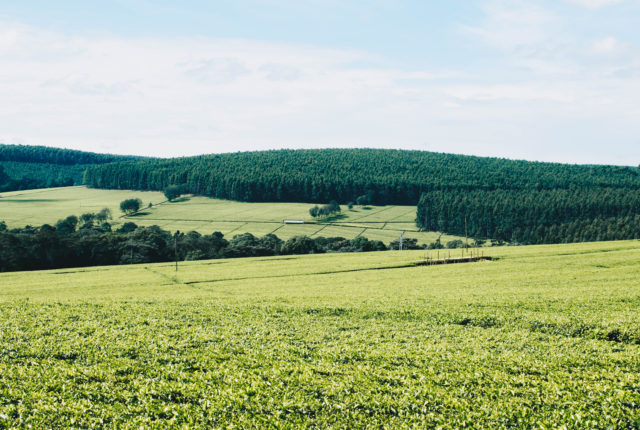By Pedro Reyes
I am 45 years old. I studied law and have been practicing private law consultancy for over 25 years, mainly in the real estate, corporate, and successions fields. In 2015 I founded a real estate agency in Querétaro City, Mexico. Almost six years ago, my only child was born. That experience was very insightful for me, because it caused me to reflect on things differently. I became more aware of the social injustice and environmental damage that is considered normal in our global society, and I also became really worried about the world in which my daughter would have to live.
I decided to be more involved in trying to make things change for the better. I joined some organizations and began contributing to activities and events mainly related to urban planning—I became president of the Real Estate Professional Mexican Association in Querétaro (AMPI Querétaro) and a member of the Construction, Urban Development and Mobility initiative of the Central Corridor and the Regulatory Improvement Commissions of the Mexican Patronal Confederation in Querétaro (Coparmex Querétaro). That is where I first heard about the New Urban Agenda, the Sustainable Development Goals (SDGs), and the 2030 Agenda, and where I proposed some public policies on real estate taxation and urban planning regulations.

I then started studying to complete a Master’s degree in Corporate Social Responsibility, and I really enjoyed my courses. However, I was still very interested in the 2030 Agenda, so I started to search for more information about it. That is how I found the edX platform and a MOOC that seemed interesting as a tool for better understanding this area of knowledge: the SDG Academy’s Sustainable Development: The Post Capitalist Order.
I learned what sustainable development is about, how global markets work, and the social injustice and environmental damage that capitalism causes. Most of all, I was thrilled to learn about a way to change business-as-usual and to work toward achieving the 17 SDGs included in the 2030 Agenda.
I already knew a bit of theory, but I wanted to learn more about the steps we can take toward action, so I registered for another SDG Academy MOOC on edX: How to Achieve the Sustainable Development Goals, where I learned that achieving the transition towards sustainable development is not a task that belongs to governments, civil society, businesses, communities, or academia individually—it is a joint task where all these sectors must work together to create widespread local, national, regional, and global partnerships.
These MOOCs convinced me that multi-sector partnerships are mandatory if we want to survive as a human species on this planet, to leave business-as-usual behind, and adopt a system that is not only centered on economic growth, but also embraces social inclusion and environmental care. The courses also helped me to clearly understand that humanity can’t reach its full potential while centered in a materialistic, destructive, and greed-oriented way of “having,” as opposed to “being.”
That is how I was inspired by the MOOCs and by Prof. Jeffrey D. Sachs, the lecturer in both courses and author of the book The Age of Sustainable Development, to take action NOW.
I founded Veinte Treinta (Twenty Thirty), a multidisciplinary project for consultancy and collaboration in sustainable development and corporate social responsibility. I also founded ERES, an NGO for achieving SDG 5: Gender Equality, by empowering vulnerable women and by spreading the SDG 5 objectives. In the business sector, as part of Coparmex Querétaro, I founded Q30: the Sustainable Development Commission, which helps entrepreneurs and corporations learn about sustainable development and move the corporate sector towards the achievement of the 2030 Agenda. Also part of Coparmex Querétaro, I proposed a project called “Emprende Social” (Make a social entrepreneurship) to help potential change agents work on solutions for social, cultural, or environmental problems. The project has been accepted and we are currently working on launching it. Emprende Social will be also sponsored by Veinte Treinta.
Through Veinte Treinta, we are also working with a team to clean up the Río Querétaro, an extremely polluted river that runs along Querétaro City, to convert it to a community public area that can be enjoyed by locals and visitors. It will also become a touristic and gastronomic corridor in the near future.
Last November, I participated in the 2nd edition of Foro Intergremial Querétaro Planeado, explaining the importance of this work as a multidisciplinary and multi-sectoral sustainable development project. We are also currently advising and looking to join another collaboration group for achieving a UNESCO Global Geopark declaration (Querétaro Triángulo Sagrado).
Meanwhile, I’m still pursuing my Master’s degree in CSR and learning to collaborate to achieve sustainable development through public policies and legislative work. I really hope that the SDG Academy courses will inspire you as they inspired me, so we can work together to create a better world, where human and environmental well-being really matter.

Pedro Reyes studied law at Universidad Nacional Autónoma de México, and earned a title as Higher University Technician in Real Estate Commerce from Mexico’s Ministry of Education (Secretaría de Educación Pública). He is currently pursuing a Master’s degree in Social Responsibility at Universidad Anáhuac. Pedro has practiced law and worked as a real estate consultant for over 25 years. He was president of the Real Estate Professional Mexican Association in Querétaro (AMPI Querétaro), and is the Founder and President of Q30: The Sustainable Development Commission in The Mexican Patronal Confederation in Querétaro (Coparmex Querétaro). Additionally, Pedro is the Founder and CEO of DSI Inmuebles, a real estate agency in Querétaro, and Director of Veinte Treinta, a CSR and sustainable development consultancy and collaboration agency. He also is founder of ERES, Emprendimiento y Responsabilidad Económica y Social, a nonprofit NGO dedicated to achieving SDG 5: Gender Equality.






